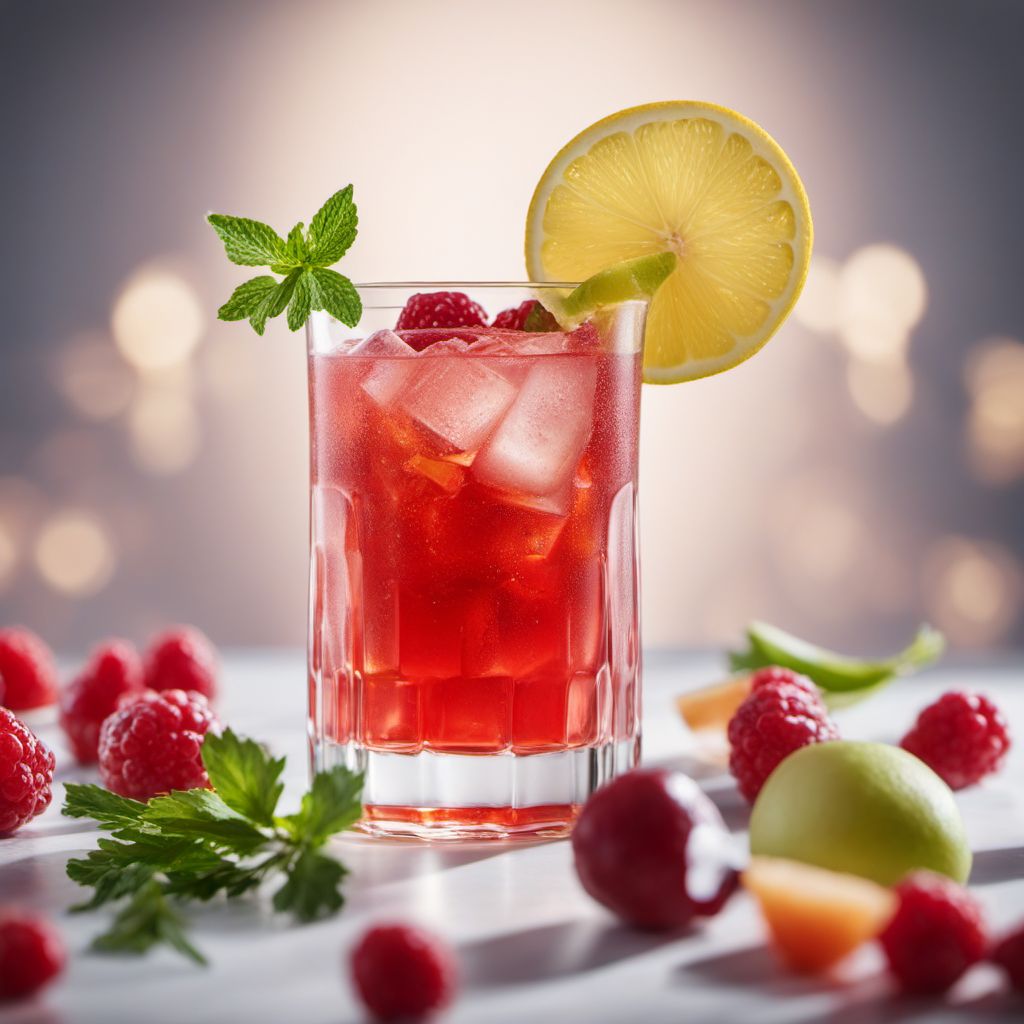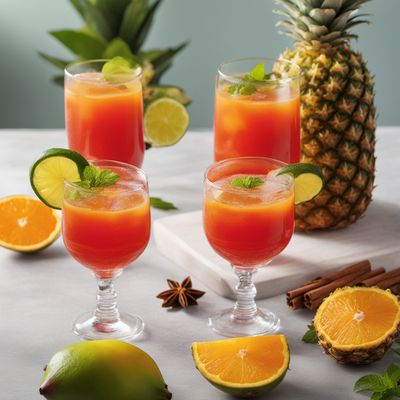
Ingredient
Cocktail drink
"Mixology Magic: Unleashing the Art of Cocktail Creation"
Cocktails are a diverse range of mixed drinks that typically combine spirits, liqueurs, juices, syrups, and other ingredients to create a harmonious blend of flavors. They can be shaken, stirred, muddled, or built directly in the glass, allowing for endless creativity and customization. Cocktails can vary greatly in taste, ranging from refreshing and fruity to bold and complex, with a wide spectrum of colors and textures. Their appearance is often enhanced with garnishes, such as citrus twists, herbs, or edible flowers, adding visual appeal to the overall drinking experience.
Origins and history
The history of cocktails dates back centuries, with their origins intertwined with the development of distilled spirits. The term "cocktail" itself is believed to have originated in the early 19th century in the United States. Over time, cocktails evolved from simple combinations of spirits, sugar, water, and bitters to more elaborate concoctions that showcased the creativity and craftsmanship of bartenders. The Prohibition era in the 1920s and 1930s further fueled the popularity of cocktails, as people sought innovative ways to mask the taste of bootlegged spirits. Today, cocktails have become an integral part of cocktail culture, with countless classic and contemporary recipes enjoyed worldwide.
Nutritional information
Cocktails vary greatly in their nutritional content, with the calorie and nutrient content depending on the specific ingredients and proportions used. It is important to note that many cocktails contain added sugars and alcohol, which can contribute to increased calorie intake and potential health risks if consumed excessively.
Allergens
Cocktails may contain allergens such as nuts, dairy, eggs, or gluten, depending on the specific ingredients used. It is essential to check the ingredients and inform the bartender or mixologist about any allergies or dietary restrictions.
How to select
When selecting a cocktail at a bar or restaurant, consider the reputation and expertise of the establishment. Look for fresh ingredients, high-quality spirits, and attention to detail in the presentation. If making cocktails at home, choose fresh fruits, premium spirits, and quality mixers to ensure the best flavor and overall experience.
Storage recommendations
Cocktails are best enjoyed fresh, but certain components can be prepared in advance and stored appropriately. Syrups, infusions, and homemade mixers should be stored in airtight containers in the refrigerator. Fresh fruits and herbs should be stored separately and used within their respective shelf lives. Spirits should be stored in a cool, dark place away from direct sunlight.
How to produce
Amateur mixologists can produce cocktails by following recipes and experimenting with different combinations of spirits, mixers, and garnishes. It is essential to understand the basic principles of mixology, such as balancing flavors, understanding the effects of different techniques, and mastering the art of presentation.
Preparation tips
When preparing cocktails, it is crucial to follow recipes accurately, ensuring the correct measurements and techniques are used. Shake cocktails with ice to chill and dilute them, or stir them gently to maintain a smoother texture. Muddling ingredients like fruits or herbs can release their flavors. Experiment with different garnishes and glassware to enhance the visual appeal of your creations.
Culinary uses
Cocktails are primarily enjoyed as beverages, often served as aperitifs, digestifs, or social drinks. They can be paired with various cuisines and are commonly featured in cocktail parties, bars, and restaurants. They can also be used as a base for cooking, such as in marinades or sauces.
Availability
Cocktails are available worldwide, with variations and regional specialties found in different countries and cultures.


